Cards In This Set
| Front | Back |
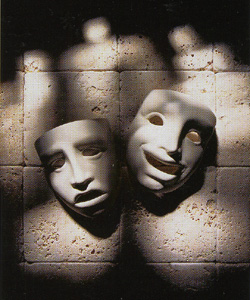 Human Nature – Liberalism is based on an optimistic faith in rationality, according to which all our knowledge and beliefs can be explained by the exercise of reason alone. As such, liberalism is a political ideology with its roots in the Enlightenment: liberals view humans as essentially rational being who can shape their world. |
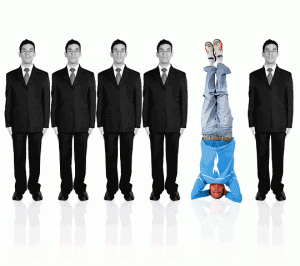 Individualism – Liberals hold an ‘atomistic’ view of society as an aggregation of individuals. Individuals are seen to posses rights to life, liberty and property, and liberal thinkers argue that society should be organised so as to promote diversity and the free development of individuality. Liberals advocate individuality because it is a condition of social progress. Individualism is viewed as a central feature of liberal democracy, which is above all concerned with the reconciling the rights of individuals with the will of the majority. This finds expression in the liberal emphasis on ‘limited’ government as a means for preventing interference in those spheres of social and economics activity which are properly the preserve of the private individual. |
 Freedom – According to John Stuart Mill ‘the only purpose for which power can be rightly exercised over any member of a civilised community, against his will, is to prevent harm to others’. There is a divide between liberals, as a number advocate positive freedom whilst others, negative. -In classical liberalism freedom is understood in a negative sense as freedom from coercion. Classical liberals do not define freedom in a substantiated way but maintain that people are free if and only if they possess a sphere of non-interference, which cannot be violated by external power such as the state. For classical liberals, the only freedom which is seen as worthy of the name is the freedom of each individual to pursue his or her own conception of good in their own way, unhindered by others. -In modern liberalism, on the other hand, freedom is understood in a ‘positive sense of empowerment’. New liberals, such as T. H. Green (1836-82) argued that freedom from coercion is inadequate unless all individuals are free to develop their talents and energies unhindered by poverty, illiteracy, disease or injustice. The idea of positive freedom implies a greater role for the state in determining which of the many competing goals in society should be pursued in the interests of empowering the majority of individuals. |
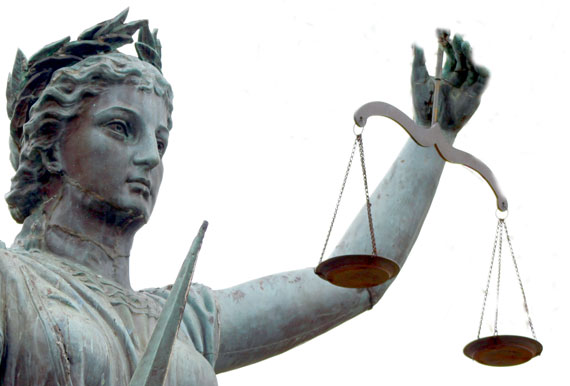 Rights and Justices – Liberals advocate foundational equality, formal equality and procedural justice. Liberals traditionally favour a procedural conception of justice in which the institutions of the state and the judiciary adopt a neutral rather than active position. This allows the state to act as a neutral arbiter between competing positions. However, communitarians contend that procedural always involves prior to acceptance of certain substantiated ethical commitments. In this way, the content of social practices can impact on the nature of rules. Liberals believe people should have an equal opportunity to demonstrate their worth. This leads to the idea of meritocracy, where the most talented rise to the top of society by virtue of superior skills and talents. Joseph Raz argues that rights are the basis of duties to others and that by respecting peoples rights means giving appropriate weight to their interests. However, there is some debate about whether rights occur naturally or whether our rights flow from membership of a specific community. Natural rights theorists such as Ronald Dworkin argued that respect for individuals rights is the foundation of political morality. He treats rights as trumps which have weight to override competing considerations. In his view, collective goals cannot be used to justify denying individuals the rights to do what they wish to do, or to justify imposing some loss or injury upon them. Legal positivists, on the other hand, maintain that individuals only have rights insofar as these are recognised and codified within legal systems. |
|
The American Declaration of Independence (1776)
which proclaimed: ‘We hold these truths to be self-evident, that all men are
created equal, that they are endowed by their creator with certain unalienable
rights’.
|
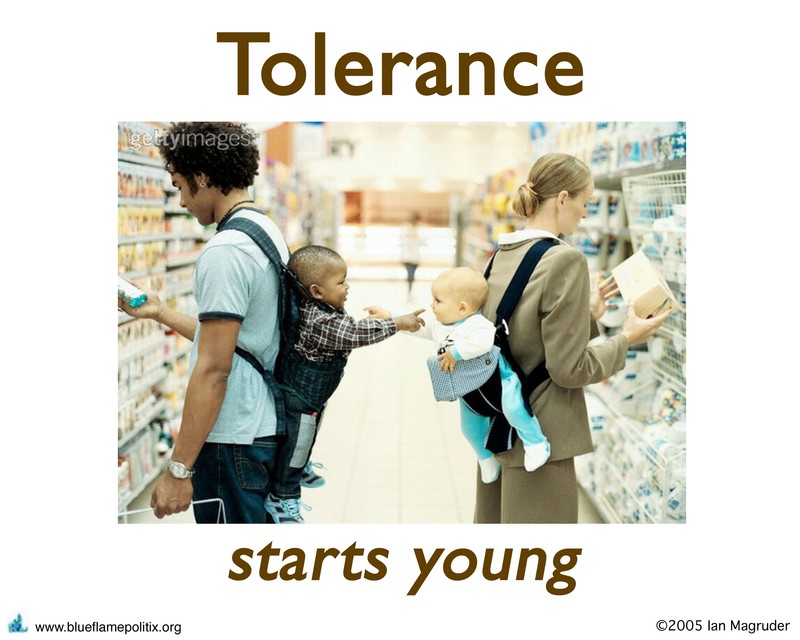 Toleration – Liberals favour toleration and respect for the opinions of others and reject prejudice and intolerance. John Stuart Mill argued “if all mankind minus one were of one opinion mankind would be no more justified in silencing that one person than he, if he had the power, would be justified in silencing mankind”. Liberals believe mankind benefits from a diversity of opinions rather than slavish conformity. Mill further insisted that even if new ideas are discomforting, we must give them their fair hearing, for the assumption of certainty or infallibility is usually based on arrogance, self-interest and self-delusion. |
|
Liberalism and Constitutional Government
Constitutionalism may be defined as respect for principles and established legal precedents in the organisation of political systems’ |
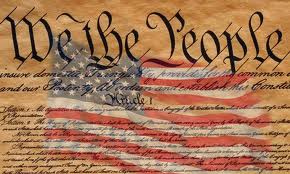 The Social Contract – Thomas Hobbes (1588-1679) in order to show the necessity of the state portrayed a world in which the state did not exist, this he referred to as the ‘state of nature’. Under such conditions, Hobbes, argued human social life is reduced to a war of all against all, in which existence becomes solitary, poor nasty, brutish and short. The only remedy for this situation is for citizens to submit to the power of an absolute sovereign. However John Locke (1632-1704) argued that Hobbes absolutism fails because in giving up the rights to an all powerful sovereign, individuals are no more secure than they would have been in a state of nature. For Locke, a civil society can only come into being where: -citizens voluntarily hand over their individual power to take the law into their own hands, and government is based on the consent of the governed -the state represents the rule of the majority and -rulers divorce their own private interests from their official powers and duties Accordingly, Locke argued that every effort should be made to ensure that those who wield power do not develop interests separate to the interests of the community. Should this occur, he argued, then citizens have the right to withdraw their consent, for it is up to the people to judge whether their rulers have acted contrary to the trust invested in them. |
|
Liberals advocate representative democracy as a means of
establishing consent and a reciprocal obligation of the citizen to obey the
law.
|
Constitutional Mechanism –
In liberal ideology, no democracy can be considered safe if
the activities of government are not subject to a system of checks and balances
designed to prevent abuses of power. Although liberals stress the capacity of
humans to act in accordance with reason power tends to corrupt and absolute
power tends to corrupt absolutely (Lord Acton). Mikhail Bakunin also held that
‘nothing is more dangerous for man’s private morality than the habit of
command’ illustrating that absolute power can be detrimental to individuals
liberties but to their thinking as apathy may begin manifest.
The American politician Thomas Jefferson (1743-1826) argued that democracy must also be based on a system of constitutional mechanisms. These include: - the rule of law -free and fair elections -a codified constitution -separation of powers -a bicameral legislature -federalism, where regional authorities pool their sovereignty to create higher level of government with executive authority to act in the interests of the member state. In totality, the ultimate purpose of constitutional government is to prevent concentrations of power. |
 Liberalism, Private Property and the State – Locke argued that individuals rights to property should be based on the labour that each person invests to create that property from the state of nature. He insists that ‘God gave the world to the use of industrious and rational’. Locke’s philosophy is the association of liberty with property: property comes to symbolise rights in their concrete form. |
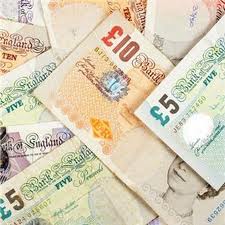 Economic Liberalism – Adam Smith (1723-1790) was concerned with the relative importance of social and selfish motives for human conduct. According to Smith, social order also derives from the activity of self-interested rational actors: ‘It is not from the benevolence of the butcher, brewer or baker that we expect our dinner but from their regard for their own self-interest’. He concluded by acting according to the dictates of their moral faculties, individuals by necessity pursue the most effective means of promoting the happiness of mankind and that through unintended consequences of their own actions, they increase the total sum of human welfare. Through the invisible hand of the market, which allocates resources in accordance with the relative merit or worth of human goals, people are led to promote useful ends which were not necessarily their original intentions. Economic liberals have been known to accept, as a result: economic self-interest, unrestricted free enterprise, anti-welfarism and low taxation. It is for this reason, socialist criticise economic liberalism because it appears to do nothing to address the undeserved social and natural inequalities which serve to determine individuals’ fates. |
|
The State –
Classical liberals believed that the main function of the government is not to organise the economic activities of citizens or to define the correct purpose of social life, but to regulate and defend the institution of property and to create the conditions for the development of private commerce and trade. |
Liberalism and democracy
It has been suggested liberal democracy is a contradiction
in terms:
Arguments in against this proposition
-
The main argument is the optimal system of government for
reconciling elite rule with the democratic will of the majority. In deferential
political culture such as Britain the political class rules on behalf of the
people. Aside from occasional referendums, the sole opportunity people have for
influencing decision-making is during elections when voters are asked to select
between competing forms of management. The principle of the mandate allows the
political class considerable freedom to govern without seeking continual
approval of its voters, although no government can afford to ignore hostile
opinion for too long.-
By promoting participation, liberal democracy actively
encourages responsibility and political education
|
|
-
Liberal democracy is a good means for reconciling economic
freedom and democratic rule. Liberal democratic states operate on the basis
that responsibility for economic decision-making belongs to the individual
rather than the state. Resources are allocated according to the principle of
competitive exchange, which does not require the same level of democratic
scrutiny as political decision-making. Hence, the definition of the political
is reduced to those issues which cannot be resolved at the level of civil
society.
-
By ensuring that government is based on the consent of the
ruled, liberal democracy helps promote the conditions for political stability
and limited government, which in turn contribute to the defence of individual
rights and freedoms in society. Respect for the views and opinions of others is
a key aspect of political pluralism, and by establishing a basis for the rule
of law, freedom of speech and obligation, liberal democracy ensures that all
but the most extreme political views are allowed to compete in a compe
|
Arguments in support of the
proposition
-Liberalism rests on a principle
of formal equality, according to which all individuals should be treated
equally by virtue of their common humanity. Equality of this view implies that
all individuals should have an equal opportunity to compete for status and
rewards, a definition which allows for difference and inevitably leads to
unequal outcomes for individuals with varying skills and talents. Democracy, on
the other hand, is based on the idea that substantive equality where all
individuals have equal voting rights. This contradiction becomes clear in
modern mass democracies based on universal suffrage. Although voters have an
equal opportunity to influence the choice of the government, they have neither
an equal understanding of the issues nor an equal investment in the outcome.
Modern mass democracy and industrial economies threaten liberalism by absorbing
civil society into the bureaucratic structures of he state and large
corporations, while the utility of parliament as an institution based on
rational debate is overshadowed by the force of popular opinion and the
mechanisations of electoral politics.
|
|
-
There is a potential contradiction between individualism and
the majoritarian principle. Alexis de Tocqueville (1805-1859) argued that under
conditions of pire, unmediated democracy there is a risk that individuals and
minority groups may be subject to the tyranny of the majority. As a result,
liberalism is only compatible with a limited form of democracy, rather than the
radical democracy envisaged by Rousseau, who contended that political
decision-making should be based on the general will.
-
Liberalism and democracy are concerned with different things.
Liberalism favours a conception of politics as an aggregation of interests. For
liberals the purpose of government is procedural namely to provide a legal
framework for reconciling competing interests. According to this view the best
government is that which governs least. Conversely democracy argues that
politics should be more about more than simply a trade off between competing
interests. Advocates of social democracy argue that decisions about determination
of social goals and the allocation of resources should also be subject to
democratic scrutiny.
-
Critics claim liberal capitalists systems have low voter
turnout alluding to an increase in apathy felt by many people towards politics.
They suggested two possible reasons for this; the first is that opportunities
for real change are marginal with the result that voters lose interest in the
issues and leave decision making to the elites. The second suggests the media
has had an effect in dumbing down issues so that opportunities for serious
popular debate are greatly reduced.
|
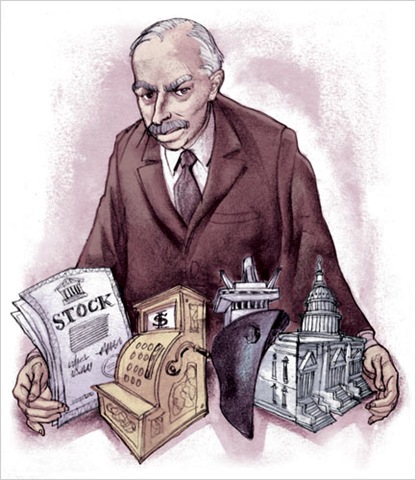 Kenyes and Interventionist Liberalism – In the twentieth century, liberal economists such as John Maybard Keynes (1883-1946) reached the conclusion that, left unregulated, markets produce sub optimal outcomes. According to Kenyes a major failing of the free market is that there are circumstances to which it cannot respond. Inevitably, it is the government that must act to regulate these social costs because no other agency has the capacity to do so. Kenyes advocated state intervention to correct the problem of market failure and to balance the competing pressures of the market. During the Great Depression of the 1930s he argued that a major social cost of the market is unemployment, which the state has a duty to deal with. Although he rejected the socialist argument that the economy can be planned, he maintained that government should direct investment into activities such as public works in order to promote full employment. Keynes’s argument that government expenditure could be used to bring an economy out of recession became economic ideology in the post-war era. |
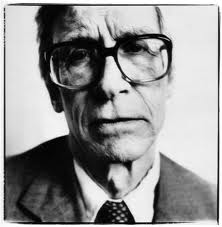 Rawls’s Theory of Liberal Equality – John Rawls (1921-2002) refuted the concept that individuals deserved the fruits of their labour as only some are born with social and economic resources needed to gains skills, to push oneself to higher level of labour and subsequently earn juicier fruits. Rawls believed we are all advantaged or disadvantaged by undeserved natural inequalities. His solution is not to eliminate difference, but to organise resource allocation so that different individuals skills and talents are harnessed for the good of the community. He devised the difference principles in which “all social primary goods- liberty and opportunity, income and wealth, are the bases of self-respect- are to be distributed equally unless an unequal distribution of any or all of these goods is to the advantage of the least favoured”. |
Strands
|



